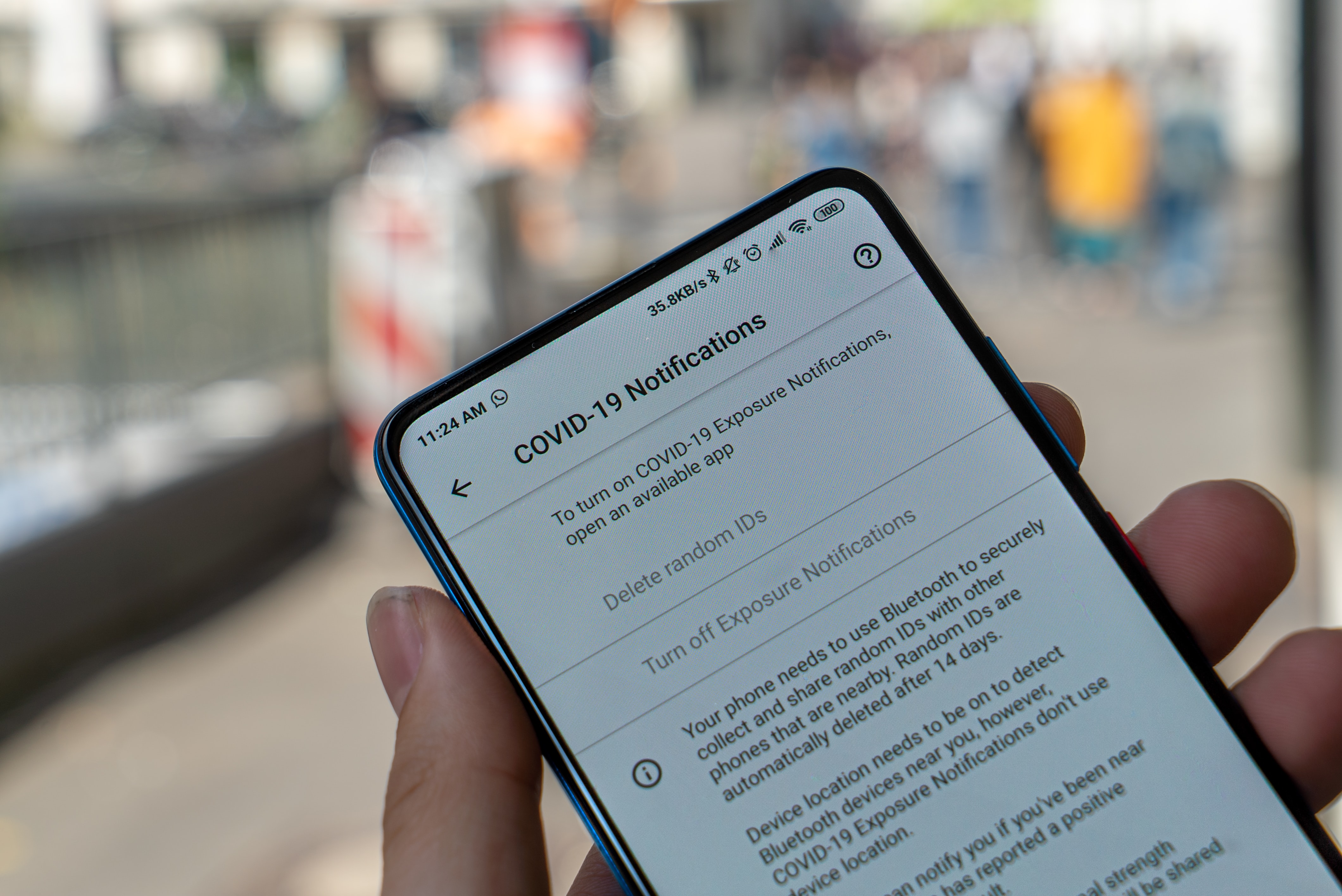Apple and Google have launched coronavirus exposure notifications without an app

The news: Apple and Google have announced they’re expanding their coronavirus exposure warning system so health agencies can take part without needing to create a customized app. It’s a significant upgrade to the system, which uses Bluetooth to work out if people have spent extended periods of time near each other and then notifies the close contacts of someone who tests positive for coronavirus. The original system launched in May and has since been adopted by six states in the US and at least 15 countries. Maryland, Nevada, Virginia, and Washington, DC, will be the first to sign up to use the revamped system, Apple and Google said in a conference call.
How it works: In states or regions that have enabled the “Exposure Notifications Express” tool, a prompt will flash up on phones with the latest version of Apple or Android’s operating system, informing the user that it’s available. Apple users just need to tap the screen to enable it. Android users will still have to download an app—however, the app is automatically generated for public health authorities by Google. All the agency has to do is provide Apple and Google with some basic information and set up servers to host Bluetooth keys and exposure verification.
Why it matters: It’s a promising development at a time when excitement around contact tracing apps has distinctly cooled. Anything that makes it easier for agencies to set up these apps should help boost adoption in the population at large, which is crucial if they are going to help break the chain of infections. However, it’s still not a panacea. These apps will only ever be part of the overall fight against covid-19, which still heavily relies on manual contact tracing, social distancing, and mass testing.
Read next: Is a successful contact tracing app possible? These countries think so.
Deep Dive
Policy
Is there anything more fascinating than a hidden world?
Some hidden worlds--whether in space, deep in the ocean, or in the form of waves or microbes--remain stubbornly unseen. Here's how technology is being used to reveal them.
A brief, weird history of brainwashing
L. Ron Hubbard, Operation Midnight Climax, and stochastic terrorism—the race for mind control changed America forever.
What Luddites can teach us about resisting an automated future
Opposing technology isn’t antithetical to progress.
Africa’s push to regulate AI starts now
AI is expanding across the continent and new policies are taking shape. But poor digital infrastructure and regulatory bottlenecks could slow adoption.
Stay connected
Get the latest updates from
MIT Technology Review
Discover special offers, top stories, upcoming events, and more.